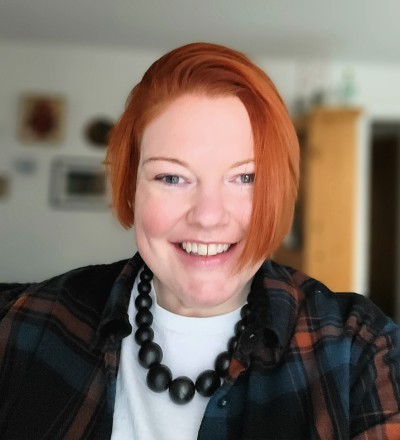Jobs using Lived Experience
For people who have used our services, and their carers/family members, there are opportunities to get involved with improving, developing and shaping our services using that real life experience. Many people tell us they like the opportunity to ‘give something back’. This can be in a volunteer role, but we also have some jobs that specifically require people to have, and be willing to use, lived experience. These are roles such as a Co-trainer or Peer Support Worker. These roles are advertised on the latest vacancies webpage when they are available.
There is a national commitment in the NHS Long Term Plan to increase the number of peer support workers in the mental health workforce and increase peer support supervisory capacity and capability.
A Peer Support Worker (PSW) is someone with lived experience of mental health issues or a carer of someone with lived experience of mental health issues who is employed to offer support to people who use our services. This can be in our community teams or other services.
We employed our first PSW in 2022 and they are now part of a number of our community teams.
PSWs work in a clinical team supporting service users with their recovery. They build relationships through common experience, shared learning, developing skills, strengths and new perspectives on recovery. Being involved in providing peer support can have benefits for both parties and can also influence the culture of our services, making other staff think about our language and labels, practices and processes. PSWs can bring inspiration and hope to staff as well as people using services.
There are also opportunities to provide peer support as a volunteer. To avoid confusion with the employed PSWs we call volunteers who do peer support 'Recovery Support (peer) Volunteers'. This can be a good foundation for applying to be a PSW later on. You can find details on the volunteering with us page.
All PSWs get training when they start the role and ongoing support and supervision. You can learn more about the peer support roles from one of the leading training providers, IMROC.
If you would like to be added to our mailing list to be informed when PSW jobs are advertised, please email us cwp.
To find out about being a Peer Support Worker in the Mental Health Intensive Support Team, see this presentation. You can also visit the NHS careers webpage.
We are delighted to announce that Helen Boyle, a valued member of the Involvement, Recovery & 
Based at University College London, the Mental Health Research for All (MH-ALL) programme aims to expand research opportunities for allied health and community staff, particularly those from non-traditional backgrounds.
Helen’s journey within our service is truly inspiring. She first engaged with us as a service user before becoming a volunteer and co-producing the peer support project. She then trained and worked as a Peer Support Worker in the Macclesfield Community Mental Health Team (CMHT) before joining the IRWC team as a Lived Experience Recovery Mentor. Now, she will draw on both her lived and professional experience at CWP to research contemporary mental health inequalities affecting service users—and work towards meaningful, lasting change.
Speaking about her fellowship, Helen said:
I am grateful to our service lead Tracey Williamson for allowing me to pursue this amazing opportunity, my line manager Emma Naden and to Phill Elliot in the Research team for supporting my application. I am honoured to be part of the MH-ALL programme and excited to explore how we can address mental health inequalities at CWP and within our service more effectively during the MH-ALL programme. I will be reviewing novel ways to increase access to services and improve outcomes for diverse groups and hope to develop future research that improves outcomes for our service users at CWP.
Tracey Williamson shared her enthusiasm:
We are thrilled to have Helen as part of the Mental Health Research for All programme. Her research will be invaluable in helping us—and the wider CMHT—enhance our services, refine recovery materials, and tailor support approaches to better meet the needs of minority groups, which remains a key priority for us.
We wish Helen all the best for her 12-month secondment and look forward to the insights and impact her research will bring.